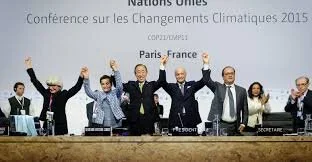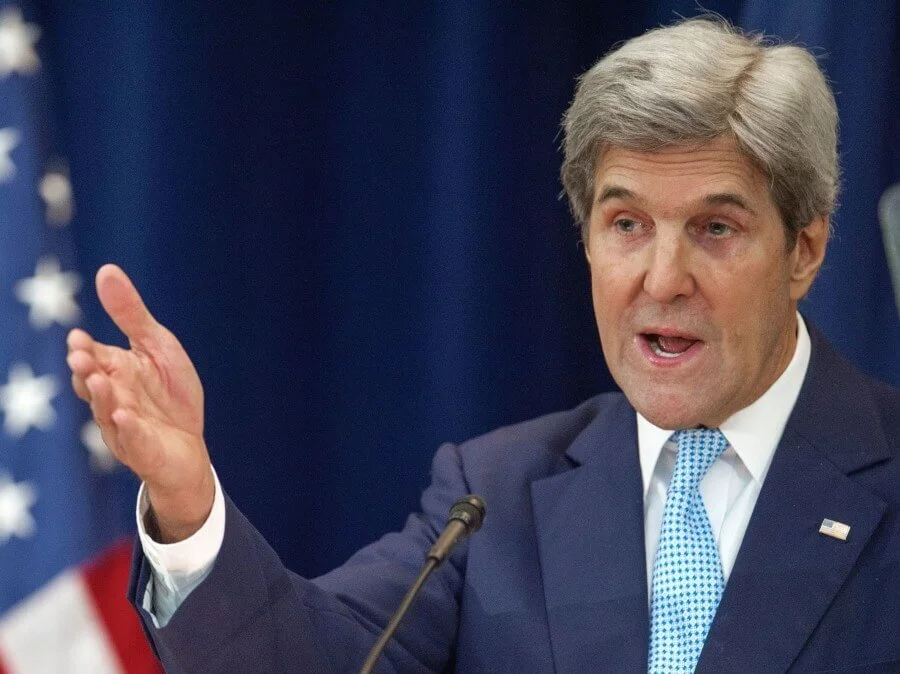ESG, Sustainability and the Incoming Biden Administration
By Shantanu Surpure
This article is part of the Top Tier Impact Member Expert Series, which features opinion pieces coming from TTI members all around the world.
ESG (environmental, social and governance) considerations have arguably been on the US government’s back burner over the last four years. Corporate America, however, has been proceeding ahead with its ESG initiatives.
The US government is expected join Corporate America and re-focus on ESG initiatives with the incoming new US presidential administration which takes charge on January 20, 2021.
This article examines some of the legal and regulatory ESG related issues which the new Biden administration may face.
Changes at the US Federal Reserve
Financial Stability Report
Even before the administration has changed hands, some significant developments have already
occurred.
The US Federal Reserve (the “Federal Reserve”) serves as the US government’s central bank.
The Federal Reserve for the first time included the risks of climate change in its Financial
Stability Report (the “Report”) which was released in November 2020.
In a section of the Report entitled “Near Term Risks to the Financial System”, the Federal Reserve
noted that severe climate caused storms could cause significant damage to the US economy
including due to changes to the value of real estate damaged in a climate caused disaster.
The Federal Reserve specifically stated that “climate change adds a layer of economic uncertainty and risk that we have only begun to incorporate in our analysis of financial stability”.
The Federal Reserve Joining the Network for Greening the Financial System
The Federal Reserve in a statement issued on December 15, 2020 announced that it had formally joined the Network of Central Banks and Supervisors for Greening the
Financial System (the “NGFS”) as a member. The US, having the world’s largest economy, was notably absent from being a member of NGFS.
NGFS is a global network of 75 central banks working on initiatives to better understand and consider climate change related economic risks. NGFS requires that its
members be a party to the Paris Agreement under the UN Framework Convention on Climate Change (the “Paris Agreement”).
Rejoining the Paris Agreement
In 2017 the US announced that it was withdrawing from the Paris Agreement. However,
the new administration has announced its intention to rejoin the Paris Agreement on the
first day of the new administration. In addition, the new administration announced that it
will hold a climate summit of the major global economies within its first 100 days.
The US executive branch has a wide latitude under US law to negotiate and manage
international affairs and agreements. The new US President could pass an Executive
Order to rejoin the Paris Agreement and then notify the United Nations of its intention
to rejoin the the Paris Agreement. The US would become a member of the agreement
again after 30 days.
Once the US is a member again, the US would then be obligated to submit an emissions
target or “nationally determined contribution” as well as submitting a US mid-21st century
decarbonization strategy. In addition, the US will need to restart making contributions to
Presidential Climate Envoy and White Office of Domestic Climate Policy
The new administration has also made certain key appointments to show its seriousness regarding the environment. Former US senator and Secretary of State John Kerry was named to the newly created cabinet level position of Presidential Climate Envoy which will serve as a global interface from the US regarding the environment and climate change. In addition, indicating the high level of the position, Mr. Kerry will also serve as a sitting member of the National Security Council.
The new administration has also announced its intention to appoint a domestic “climate czar” to its newly formed Office of Domestic Policy. Gina McCarthy, who previously ran the Environmental Protection Agency under the Obama administration, was named the White House Office of Domestic Climate Policy which will be the domestic counterpart to Mr. Kerry.
Legal and Regulatory Changes Regarding ESG Investments
There may be substantial legal and regulatory changes under the new administration specifically with respect to ESG investing.
ESG Investment Related Regulations
In June 2020, the US Department of Labor proposed regulations that would have made it more
difficult for retirement plans under ERISA (Employee Retirement Income Security Act) to factor
ESG considerations in their investment decisions. The investment community reacted by arguing
against these proposed regulations by stating that ESG related investment factors are in fact
investment factors.
However, the Department of Labor’s final rule issued on October 30, 2020 continued to reinforce
the concept that ERISA related retirement plans must continue to remain focused on financially
related factors and such plans will bear the onus of demonstrating a financial linkage in choosing
It is possible that this rule results in a chilling of ESG related investment despite the current
trends in the industry. It remains to be seen whether this rule undergoes any changes or is
otherwise countered under the new administration.
ESG Related Disclosures for US Publicly Listed Companies
In addition, a new Securities and Exchange Commission (“SEC”) chairperson may also be appointed by the new administration. US publicly listed companies are currently required to disclose “material” risk factors but it is not clear whether ESG factors are considered material.
It is possible that a new SEC chairperson could establish new regulations requiring public companies to disclose climate change related risk and greenhouse emissions in their SEC filings.
Going Forward
In general, there is likely to be an increased awareness and focus on ESG issues in the US over the next four years which marks a substantial change from the previous four years. The US will need to repair its “ESG credentials” to some extent but it appears that certain actions are being undertaken at both the global and domestic US stage by the incoming administration in order for this to occur.
ESG related investment as a theme and focus is likely to continue to be of interest to US investors and global investors investing in the US. The new administration is likely to be more receptive to the investment community’s perspectives on ESG.
Shantanu Surpure
This article was written by TTI member Shantanu Surpure, who is a corporate lawyer based in Silicon Valley. Shantanu is a US, UK and India qualified lawyer with law degrees from Oxford and Columbia Law School and focuses on venture capital transactions including those with an ESG component.
Shantanu is leading the TTI Legal and Regulatory Affairs Working Group.





